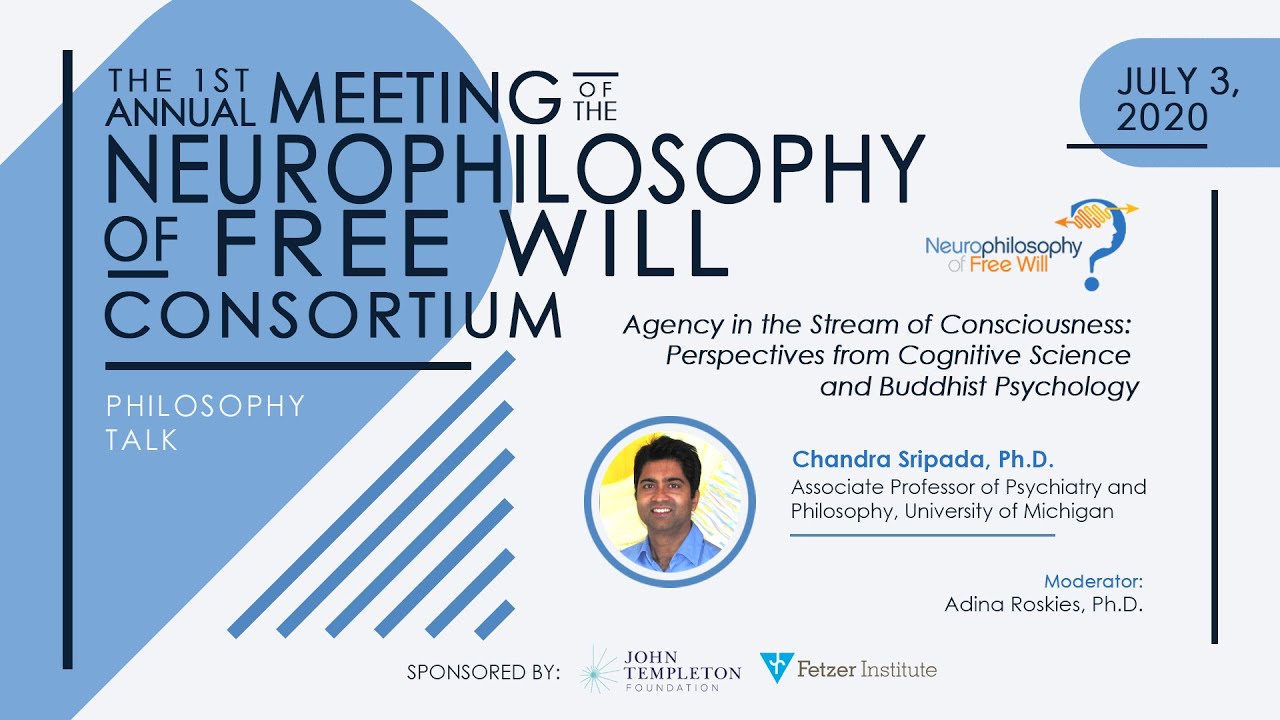Neuroscience and Philosophy of Free Will
Speaker: Chandra Sripada, Ph.D.
Abstract: The stream of consciousness refers to ideas, images, and memories that meander across the mind when we are otherwise unoccupied. The standard view is that these thoughts are associationistic in character and they arise from subpersonal processes—we are for the most part passive observers of them. Drawing on a series of laboratory studies we have conducted as well as Buddhist models of mind, I argue that these views are importantly incorrect. On the alternative view I put forward, these thoughts arise from minimal decision processes, which lie in a grey zone: They are both manifestations of agency as well as obstacles to it.
Source




Regarding the empirical data, why not get a temporally resolved physiological readout as volunteers speak, for example, by recording speech sound level or jaw muscle activity or breathing rate? I take issue with there being no ground truth against which the verbalized SST is compared. How do we know that simple grammatical breaks, bouts of silence, or word repetitions are not meaningful?
Great talk. Thanks!
Excellent talk, thank you for this!
Gracias! 👍